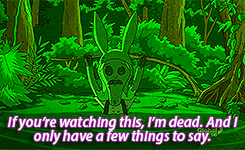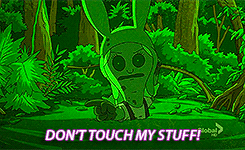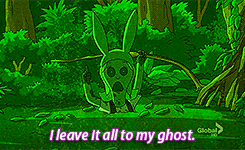So part of my sucktastic year has involved everyone dying or getting sick, including the devastating loss of my friend, chosen family, and mentor Judy Bagshaw. I will not once again get into the greatness that was Judy because I’ve done so here and here and I have a post I’d like to write for y’all without getting weepy.
After her funeral, I was speaking with her brother and he felt I should have her intellectual property. I was overwhelmed by gratitude, and then later came the copyrights transfer, the contracts, the sorting out of royalties… Really, this situation worked out well for all involved since I was familiar with her work, her publishers, and the business in general.
That isn’t the case for every writer and her family, however.
You’re reading this, I presume, because you write and either are published or would like to be. Even if you’re never published, every word you put to page is copyright, and it’s all covered under your intellectual property rights when you die. And, well, you are going to die. Maybe fifty years from now. Maybe tomorrow. Depending on where you reside and publish your work, the length of copyright protection after your death varies. In the US it goes for seventy years after your death; in Canada, it’s fifty. Just like the rest of your physical property, you have to consider what will happen to it when you’re gone and decide how to distribute it.*
If you’re leaving your work to another writer who knows the business, great. But what if your spouse inherits it? Or your children? Or someone else you’ve designated a literary heir who might not know publishing?
Remember, I am not a lawyer (although sometimes I play one on TV). But here is a general outline of information they should know:
Who your publishers are and agent is, how to contact them, where copies of your contracts are, and in plain language what those contracts mean.
Most contracts I’ve seen stipulate that the heir inherits the contract and are then bound by those same terms. This means your heir now has to deal with your publishers just as you have. Likewise with an agent who would’ve sold your work. You should have an up to date list in your files of how to get in touch with the people publishing your books, how long the contracts last, and any other pertinent details. If you have works contracted but in edits when you pass, you have to consider whether or not your heir would be able to pick that book up and complete the work you were doing on it.
What copyright entails and what rights they now have.
Copyright is a confusing thing even for those of us who know publishing. A brief outline for your heir will help, just in case he or she decides to try to sell other rights later. Are foreign language rights available? Does your heir know about derivative works? Who holds the audiobook rights? This is information your family should be familiar with. They also need to know how rights being exploited by a publisher can be returned to you. With the exception of work for hire (I believe), your publishing rights can be returned after thirty-five years even if there’s no termination clause, but there are a host of things to know.
What names you publish under.
A lot of writers have multiple names now for various genres, including erotica that they might not want linked to their other work. Your heir, however, needs to be aware of what your pen names are as well as your wishes about whether you want them to remain separate after you pass. Once you’re dead, you might not care, and that’s fair. But if you do care, they should know. Yes, even if you write gay billionaire dinosaur lactation erotica.
If you self-publish, have a list of stores you sell at with the account names and passwords.
Keep this with all your other business items to make life easier on your heir. Again, if you self-publish under a pen name your general family doesn’t know about, you should still leave instructions for your heir.
How to access your website admin and social media accounts.
I have a “hit by a bus” philosophy–it’s where I like to give other people access to things in case I’m hit by a bus. I’ve worked with people who had important files and then disappeared with them, and it’s a pain in the ass. For something like a public author Facebook page, make a friend or family member an administrator Just in Case. With your important files, have up to date login info for your website. You don’t have to leave instructions for your non-tech-savvy relative who might inherit things, but just make it easier for him or her to hire someone to go in and update it. Once you’ve passed, your heir can usually contact places and get access to turned over to them, but it can be a lengthy process, especially for someone who might not even know what names you publish under (again, see above).
When royalties are expected and from whom.
Different publishers pay at different times of the year, as do different stores if you self-publish. A spreadsheet detailing all of this will make life easier for your heir, so he or she knows when to expect payments (and when to start chasing them down), and how to access PayPal.
Instructions to obtain an ITIN if non-US.
If you’re not an American, odds are you had to obtain an ITIN and fill in a W-8BEN to receive royalties. After you pass, your heir will start receiving those royalties. He or she will need to file the same paperwork you did, and if your heir hasn’t navigated the publishing world yet, this will likely be a huge added stress. Granted, the requirements for this will change over the years, but even instructions about calling an IRS-authorized Acceptance Agent would help.
How to transfer copyright.
Let’s say your IP goes to a spouse or someone who you think might choose to pass the work to someone else, as Judy’s brother did with me–that means they need a copyright transfer. This is a document that says they own the rights to the work and are transferring them to someone else to do what they like with them. I cobbled one together from a couple of templates, had us sign them digitally, and then had a PDF to show Judy’s publishers for their own files. It’s simple but an important step.
What you want done with your unpublished and unfinished work.
Judy and I talked a lot about her writing, so I know what she had in progress and outlined. I also know her files and computer will be coming to me, so there’s a chance that I will be able to finish some of her works if they were close to completed and then release them for her readers. Unless my own process dramatically changes or I possess someone’s body to finish writing, that will not happen with me as I don’t write outlines. I have to then consider if I’d want someone to complete those works on their own or leave them be (which would mean fuck all if they decide to finish them anyway, but I would think anyone we choose to inherit our work will respect our wishes). And then there are out of print/unpublished works–are these things you’d want published after your death? Your trunk novels? Your literary heir will have the right to do what he or she sees fit with them, which means this is another area you should discuss ahead of time with your family.
—–
So those are a handful of considerations I’ve run into so far. If you think of others, please leave a comment.
And then immediately start writing down the things I mentioned above and speak to your loved ones about this subject. Because, again, you are going to die. Your work is your legacy and deserves to live on with as few bumps in the road for your literary heir as you can manage.
*Unless you’re me. I have the Louise Belcher Last Will.




I AM a lawyer, and one who specializes in trusts and estates – and the only thing I have to add is that if you have an estate plan, you intellectual property should be included in it specifically. And if you don’t have an estate plan, and you have lots of intellectual property, then maybe you should consider doing one…